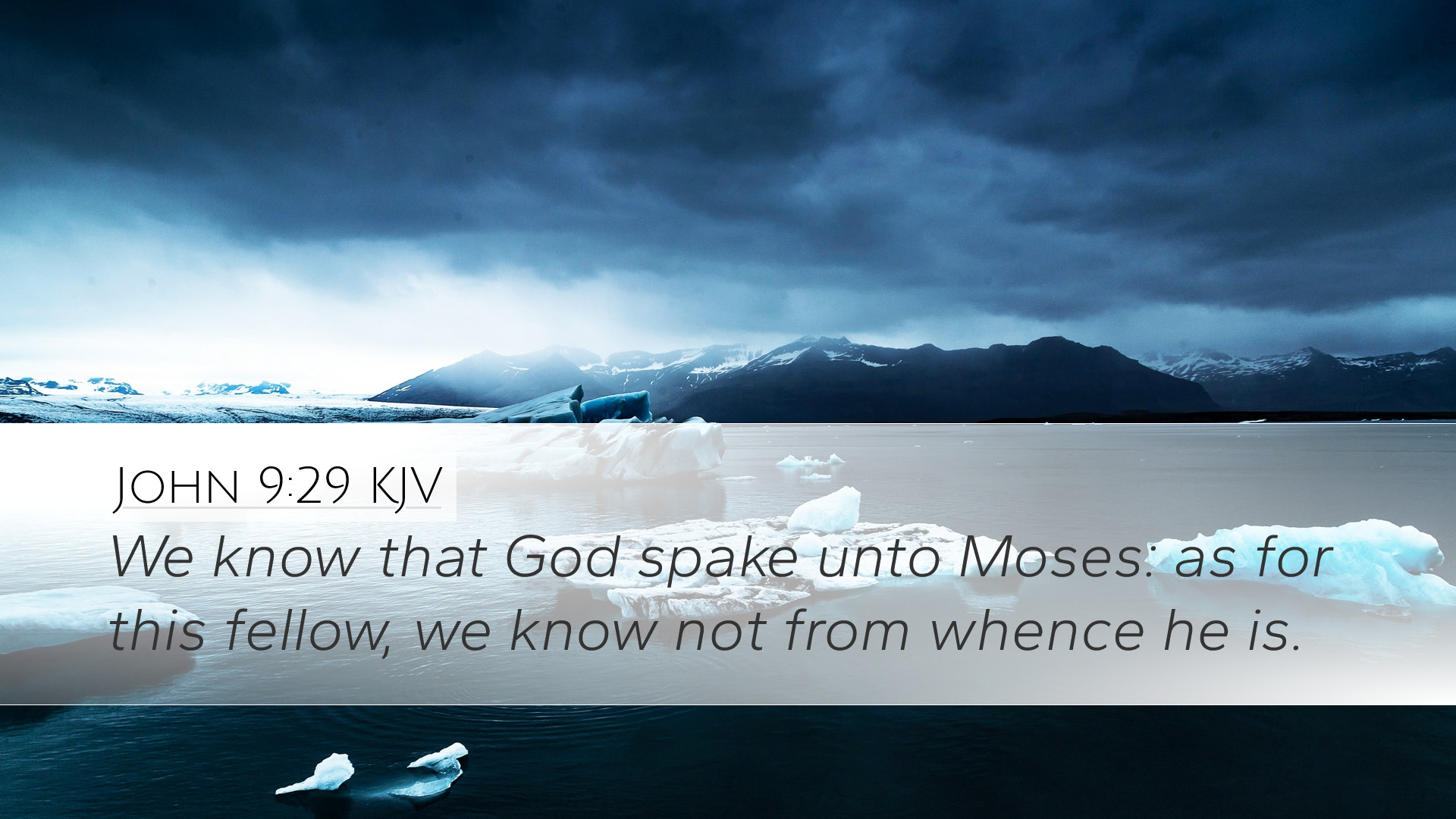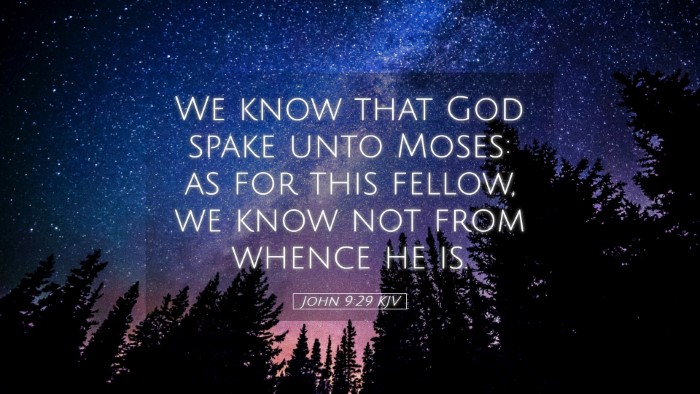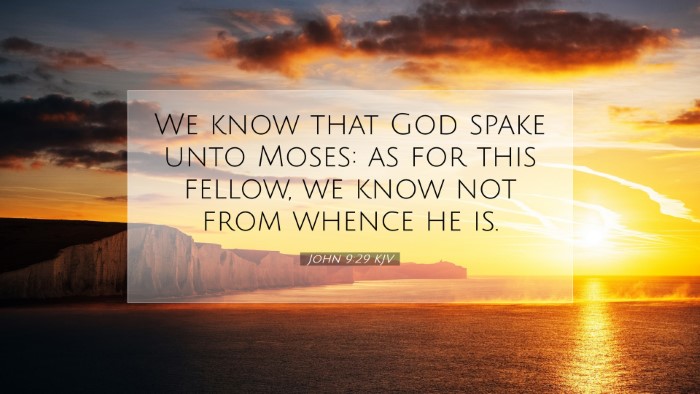Bible Commentary on John 9:29
In John 9:29, the context unfolds a remarkable confrontation between the man who was born blind and the Pharisees who were scandalized by the miracle performed by Jesus. The verse reads: "We know that God spoke to Moses; but as for this man, we do not know where he comes from." This statement highlights the tension between established religious authority and the emerging revelation in Christ.
Contextual Analysis
The narrative begins with the healing of a blind man, who becomes a focal point for discussions surrounding authority, revelation, and belief. The Pharisees, representing the Jewish religious establishment, challenge the validity of Jesus’ divine authority. This setting prompts an exploration of the nature of true understanding versus mere tradition.
Matthew Henry's Commentary
Matthew Henry emphasizes the contrast between the spiritual blindness of the Pharisees and the physical restoration of the man born blind. He notes that the Pharisees claim knowledge rooted in Moses, yet they fail to recognize the fulfillment of the law in the person of Christ. Henry further argues:
- The irony of knowledge: The Pharisees, confident in their knowledge of God’s communication with Moses, are ignorant of the present revelation through Jesus Christ.
- Spiritual blindness: Their lack of spiritual insight results in a hardened heart, preventing them from acknowledging Jesus' miraculous works as signs of God's kingdom.
Albert Barnes' Commentary
Albert Barnes offers a profound examination of the Pharisees’ assertion. He points out that their reference to Moses was an attempt to dismiss the possibility of Jesus’ legitimacy. Barnes elaborates on important themes:
- Authority and lineage: The Pharisees assert their connection to Moses to reinforce their authority, showcasing how they sought to diminish Jesus' standing.
- Knowledge versus ignorance: In their declaration of ignorance about Jesus’ origins, they reveal their deeper spiritual ignorance and rejection of divine truth.
Adam Clarke's Commentary
Adam Clarke takes a theological approach in examining how this verse illustrates the struggle between human tradition and divine revelation. He makes several notable points:
- Divine revelation: Clarke underscores that while the Pharisees rely on their historical connection to Moses, true knowledge comes only through divine revelation and relationship with God.
- Consequences of rejection: He warns that such rejection not only blinds them to truth but also establishes a barrier to their understanding and acceptance of God’s work through Christ.
Theological Implications
From the commentaries, several theological implications emerge that bear significance for pastors, students, and scholars alike:
- The nature of true knowledge: The exchange shows that genuine knowledge of God transcends mere historical understanding. It necessitates an encounter with Christ as the ultimate revelation.
- Authority and authenticity: The verse challenges contemporary religious leaders to reflect on where their authority derives—from tradition and human endorsement or from direct experience and relationship with Jesus.
- The risk of spiritual arrogance: The Pharisees’ reliance on their traditions serves as a warning against pride that arises from perceived knowledge, which can lead to a rejection of the very truth one claims to uphold.
Practical Application
For modern believers, John 9:29 serves as a reminder to approach Scripture with humility. It calls for:
- Openness to divine revelation: Believers should cultivate a posture of openness to what God is doing in their lives and through the community of faith.
- Self-examination: Reflecting on personal biases and traditions that may obstruct understanding and accepting Christ’s realities.
- Pursuance of relationship over ritual: Emphasizing an intimate relationship with Christ over mere participation in rituals or adherence to traditions.
Conclusion
In conclusion, John 9:29 serves as a significant platform for discussing the themes of knowledge, authority, and divine revelation. Insights from Matthew Henry, Albert Barnes, and Adam Clarke converge to highlight the need for spiritual insight today. As we reflect on the implications of this narrative, may we seek not only to understand the words of Scripture but also to embrace the life-transformative presence of Jesus Christ, who is revealed to us through the Holy Spirit.


